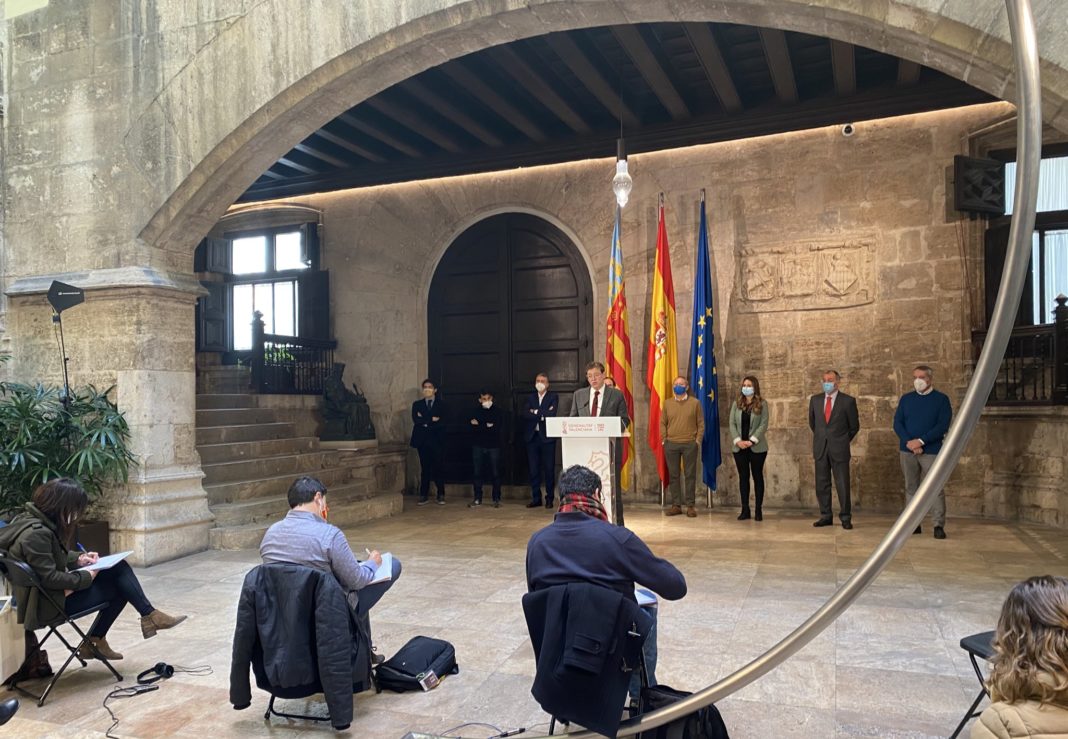- The Resiste Plan is especially aimed at the hospitality, accommodation, catering, tourist and leisure sectors with direct financial aid and favourable financing conditions from the Valencian Institute of Finance (IVF).
The president of the Generalitat Valenciana , Ximo Puig, announced this morning the Resiste Plan amounting to 340 million euros, and whose objective is to help the four sectors that are being most affected by the restrictions imposed to tackle the pandemic. These are the hospitality and tourist accommodation, catering, tourist activities (travel agencies or operators) and leisure activities.
The rescue plan has been agreed with the Valencian employers’ association, CEV, and with the main trade union organizations (UGT and CCOO) and it is estimated that it will benefit a total of 21,000 companies, 43,000 self-employed workers and 47,000 people in ERTE in the Valencian Community.
The president detailed that six main measures that are being addressed:
- The amount of 80 million euros in direct aid to cover up to 100% of the Social Security contributions of the self-employed and companies in the accommodation and hospitality sectors, travel agencies, artistic, recreational and leisure activities.
- Aid worth 8 million euros for the 26,000 self-employed persons most affected by the cessation of their activities or a drastic reduction in income. It is autonomous aid that will be complementary to the benefit they have already received from Social Security.
- Aid of 17 million euros for the 48,000 workers on ERTE who have seen their income reduced.
- Aid of eight million euros to support leisure and entertainment activities – with special emphasis on nightlife – due to the restrictions required during recent months to contain the pandemic and from which entertainment facilities and shows, discos, pubs will especially benefit.
- A Municipal Cooperation Fund is created, which will have a minimum of 127 million euros and a contribution of 50% from the Generalitat, (60 million), 30% from the councils (36 million) and 20% from city councils, ( 24 million).
- The Valencian Institute of Finance will launch two additional funds for the affected companies with 100 million euros. It will provide a line of subsidised loans of up to 750,000 euros for companies related to leisure, accommodation and restaurants, and related activities, through which the IVF intends to provide 50 million euros . These loans include a non-refundable sum that could be as much as 30%. There will also be a line for participative loans, up to 800,000 euros, “for companies with a limited financial resources, that before the pandemic were viable.” With this line, the IVF intends to provide another 50 million euros .
It should be noted that the different funds will not be exclusive, so that a company or individual may opt for more than one benefit included in the ‘Resiste Plan’.
Of the 340 million, the Generalitat will contribute 82% of the total, that is, 279 million euros. The president has said that the Consell is concentrating at the moment on two fundamental elements, which are “overcoming the pandemic and the economic reactivation” and has insisted that “they must be done simultaneously.”
Puig announced these new measures at the Palau headquarters, where he was accompanied by the president of the CEV, Salvador Navarro; the general secretary of CCOO PV, Arturo León ; the general secretary of UGT PV, Ismael Sáez; as well as the ministers of Finance and Economic Model, Vicent Soler; the Minister of Education, Culture and Sports, Vicent Marzà; and the Minister of Sustainable Economy, Productive Sectors, Trade and Labor, Rafa Climent .
Navarro emphasised that, once the aid has been made available, the Administration must commit “to ensuring that the procedures are agile and as can be implemented as quickly as possible” given the complicated situation that companies and workers are going through”.





